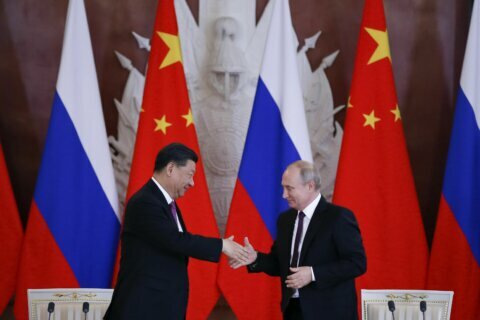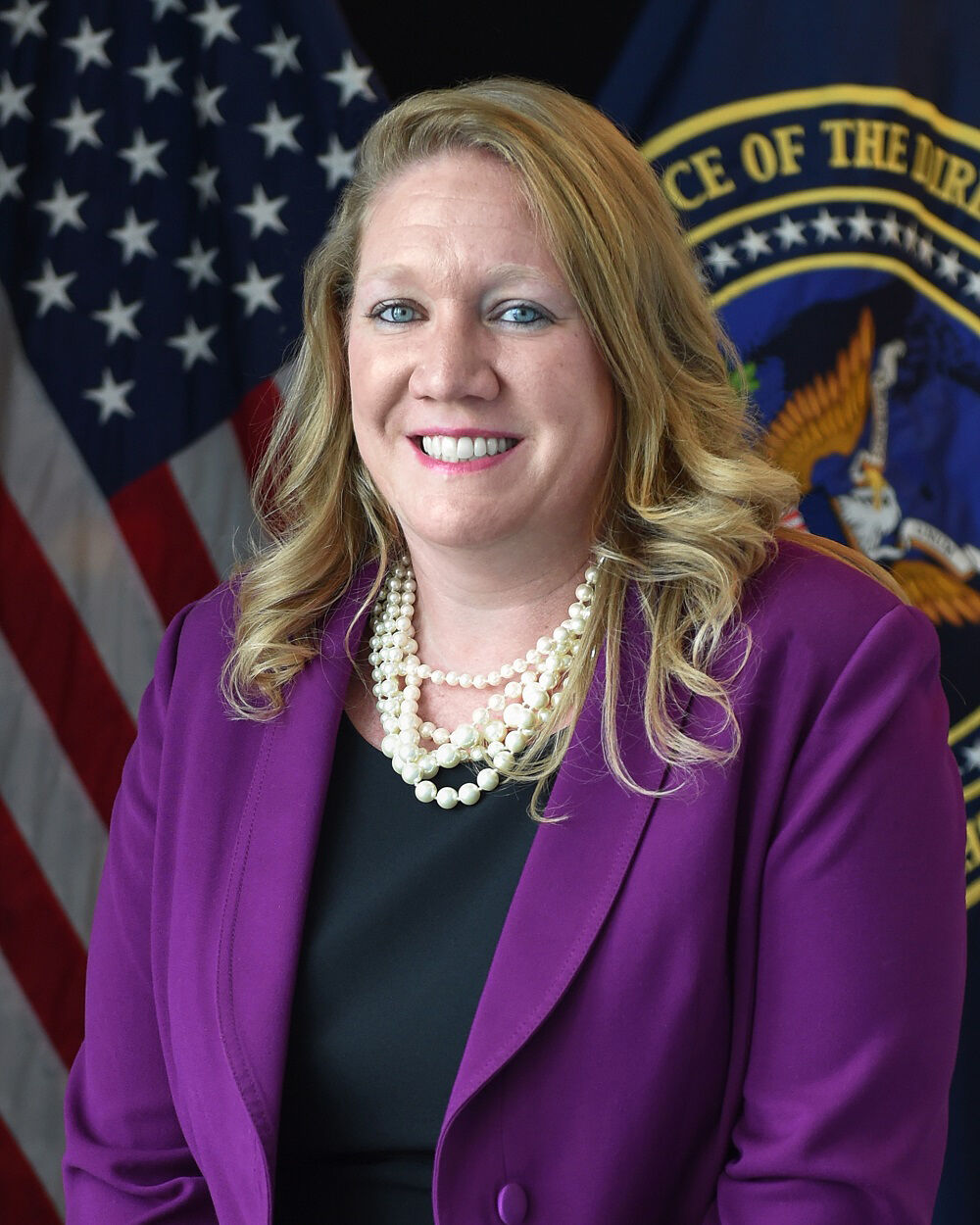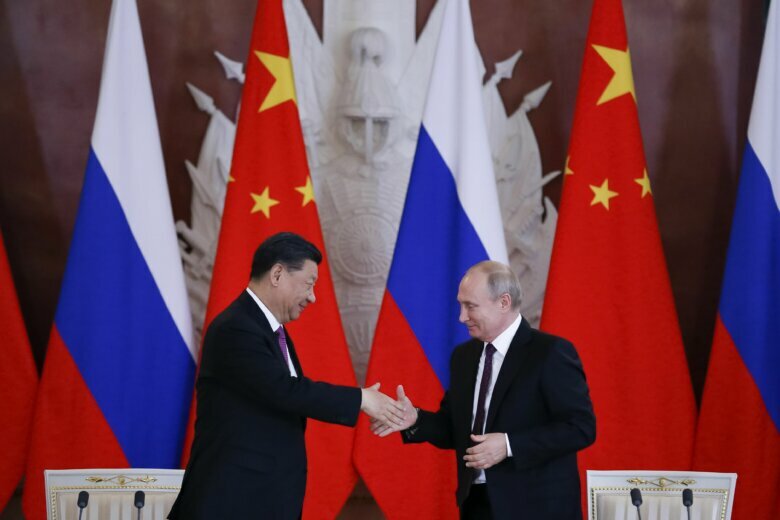
Before the first rays of sunlight peek over the horizon in D.C., Deirdre Walsh is on her way to the sprawling, 40 -acre Liberty Crossing complex, in McLean, Virginia, that houses the Office of Director of National Intelligence (ODNI) and several of the 16 intelligence agencies it oversees.
“I’m out the door. I try to get some exercise, as much as I can, to kind of get the cobwebs out, and I’m in the office between 7:00 and 8:00 (a.m.),” she said.
Clearing the cobwebs quickly is important.
As the chief operating officer at the ODNI, the collection of threats Walsh and the rest of the intelligence community faces in 2020 is comparable to a phalanx of hidden fire hoses that can erupt, seemingly out of nowhere, waving around and uncontrollably blasting critical intelligence at the IC. Each source requires immediate diagnosis and action.

Imminent nation-state threats to U.S. national security, pernicious cyberattacks and looming global health crises, like the 2019 novel coronavirus, are but a small fraction of the burgeoning front-line intelligence challenges facing the nation.
“You have your big four — China, Russia, Iran and North Korea — all the challenges that they present and some of the newer things that have really risen in the last few years, things like counterintelligence,” said Walsh.
Of that quartet of adversaries, each has a formidable military, has nuclear weapons or is intent on developing them, operates a robust suite of cyber weapons, is believed by the U.S. intelligence community to have spies on American soil, is adept at anti-U.S. rhetoric and perhaps most worrying, appears to be growing more aggressive toward the U.S.
“Whether it’s the nuclear capabilities in North Korea or Russian intentions and the Chinese movements in the economic space, those are things that we’re watching every day,” Walsh said.
There are also urgent and potentially damaging election security threats, disinformation campaigns and espionage plots quietly churning away in the shadows.
Acknowledging that she was “borrowing a phrase from a former boss of mine,” Walsh classified many of those threats as, “hardy perennials … the kinds of things that come back every year.”
But each time, they bring new twists — and among the latest are concerns about Cuba.
During the release of the new National Counterintelligence and Security Center’s counterintelligence strategy on Feb. 10, the document noted, “the number of actors targeting the United States is growing.”
The strategy also addressed the increasingly complex, diverse and innovative combinations of spy craft utilized by the nation’s adversaries.
Speaking to reporters, the center’s director, William R. Evanina, highlighted a reality little-known outside of intelligence circles: Significant activity by “Russian intelligence and Chinese intelligence on the island of Cuba.”
Situated just 90 miles from U.S. shores, the nation’s two top adversaries are able to target the contiguous U.S. from a country that maintains hostile relations with Washington.
Though it was never proven, numerous intelligence sources that spoke to WTOP said they believe the targeting of U.S. and Canadian diplomats in Cuba with a sonic weapon that made them ill was the work of either Russia or China. Similar episodes have taken place in both countries.
Not only does Cuba appear to be facilitating Russian and Chinese intelligence activities there, according to sources familiar with Cuban intelligence operations, they have an active “illegals” (undocumented, undercover intelligence agents) program inside the U.S.
And while Cuba is 154 times smaller in area than Russia, and China is 87 times larger than Cuba, the island nation is a global giant when it comes to espionage.
“They develop human sources, in my opinion, like no one else,” FBI agent Pete Lapp told WTOP in September 2019.
In addition to the growing number of threats, attitude is another key concern. The Senate Intelligence Committee, a key intelligence community stakeholder, has taken note of the brazen manner some threat actors are behaving.
“As many folks know by now, the people trying to interfere in our election aren’t doing so in the middle of the night,” Sen. Mark Warner, D-Va., vice chair of the Senate Intelligence Committee said. “They are acting openly, using American-bred social media companies to spread disinformation and sow discord among our communities.”
Russia, Warner added, has shown the rest of the world how to use American assets to attack the U.S.
“Russia weaponized the reach and scale of our online platforms in 2016, and now their playbook is out there for other adversaries to replicate,” he said. “That’s why one of the biggest challenges in securing this upcoming election is going to be fighting the spread of disinformation.”
According to its mission statement, the ODNI’s role is making sure that all of the components of the intelligence community functions as one team, “synchronizing collection, analysis and counterintelligence so that they are fused.”
In order for that team, according to Walsh, one of a number of young women, quietly working their way into the upper ranks of U.S. intelligence, to tackle the tough issues it faces, diversity is a necessity — diversity of gender, race, age and thought.
“The IC needs to look a lot like, not only where it operates, but its home, which is the U.S.,” Walsh said. “There’s a diversity of backgrounds, there’s a diversity of perspectives, there’s a diversity of knowledge base that we need to take advantage of.”
Its ultimate goal is “ensuring national policymakers receive timely and accurate analysis from the IC to make educated decisions.”
Those decisions, more and more often can happen in the middle of the night, which means phone calls that force Walsh out of bed and into the office. But she said it’s something she gladly accepts, because of her responsibility and the team.
“They’re the most dedicated selfless and, really, tremendous patriots that work hard day and night,” she said. “Many of them you’ll never know their name. Some of their families may not even know what they do.”









